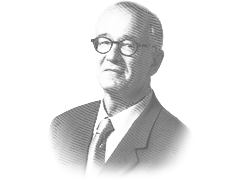Kim Weeden is a Professor of Sociology at Cornell where she serve as the Robert S. Harrison Director of the Institute for the Social Sciences, the Interim Director of the Center for the Study of Inequality, and co-Director/co-PI of CU-ADVANCE. Weeden is an affiliate of the Cornell Population Center, the Center for the Study of Economy and Society, and the Cornell Institute for Compensation Studies, and, outside of Cornell, the chair of the Inequality, Poverty, and Mobility section of the ASA.
Expertise
Current Research Interests
I study the patterns, sources, and consequences of inequality in advanced industrial societies. Much of my work explores how the division of labor organizes the distribution of life chances, attitudes and beliefs, and lifestyles across time, space, and generations. Other work focuses on gender inequality in the labor market.
Selected Publications & Presentations
- Weeden, Kim A., Young-Mi Kim, Matthew Di Carlo, and David B. Grusky. 2007. “Social Class and Earnings Inequality.” American Behavioral Scientist 50(5):702-36.
- Weeden, Kim A., and David B. Grusky. 2005. “The Case for a New Class Map.” American Journal of Sociology 111(1):141-212.
- Weeden, Kim A. 2005. “Is There a Flexiglass Ceiling?” Social Science Research 34(2):454-82.
- Weeden, Kim A., and David B. Grusky. 2005. “Are There Any Big Classes at All?” Pp. 3-56 in The Shape of Social Inequality: Stratification and Ethnicity in Comparative Perspective, edited by David Bills (in honor of Archibald Haller). Published as Volume 22 of Research in Social Stratification and Mobility. Amsterdam: Elsevier.
- Weeden, Kim A. 2004. “Profiles of Change: Sex Segregation in the United States, 1910-2000” Pp. 131-78 in Occupational Ghettos, by Maria Charles and David Grusky. Stanford: Stanford University Press.
- Weeden, Kim A., and Jesper Sørensen. 2004. “A Framework for Analyzing Industrial and Occupational Sex Segregation in the United States”. Pp. 245-96 in Occupational Ghettos, by Maria Charles and David Grusky. Stanford: Stanford University Press.
- Weeden, Kim A. 2002. “Why Do Some Occupations Pay More Than Others?” American Journal of Sociology 108(1):55-101.

